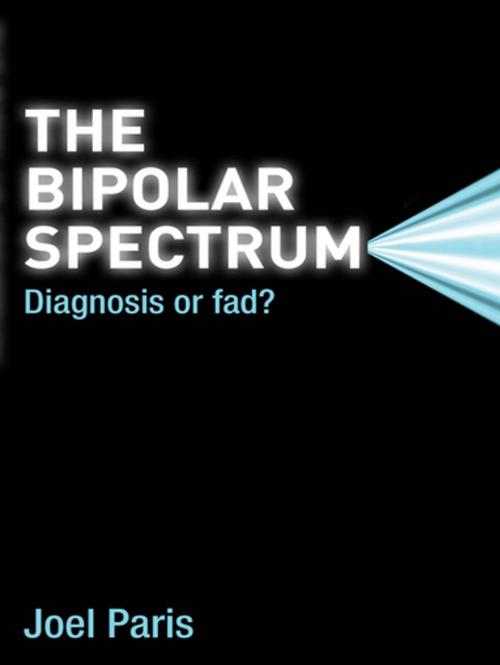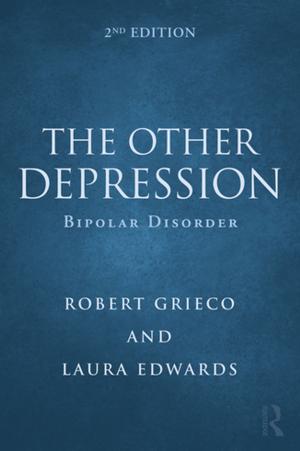The Bipolar Spectrum
Diagnosis or Fad?
Nonfiction, Health & Well Being, Psychology, Clinical Psychology, Mental Illness| Author: | Joel Paris | ISBN: | 9781136325328 |
| Publisher: | Taylor and Francis | Publication: | April 23, 2012 |
| Imprint: | Routledge | Language: | English |
| Author: | Joel Paris |
| ISBN: | 9781136325328 |
| Publisher: | Taylor and Francis |
| Publication: | April 23, 2012 |
| Imprint: | Routledge |
| Language: | English |
In the 1970s, author Joel Paris was one of the first doctors in his hospital to prescribe lithium to a psychiatric patient. In the wake of the drug’s success, both in that case and countless others, why this book? As Dr. Paris’ historical examination of bipolar diagnosis and critique of the spectrum demonstrates, medicine has often been prone to fads that are assumed correct until proven wrong by science. This book opens discussion about the overdiagnosis of bipolar disorder and the negative impact of this development on clinical care. Dr. Paris explores why patients are being classified as bipolar on dubious grounds and are being prescribed drugs they do not need. He explains the differences between bipolar disorder and depression without mania, personality disorders characterized by unstable mood, and impulsive disorders. A separate chapter discusses the unique issues present in the field of child psychiatry. Fads remain popular as long as they answer elusive and complex questions. Unfortunately, the bipolar spectrum being used to explain a wide variety of psychopathological phenomena has caused classic bipolar disorder to become almost lost in the shuffle. Combining research findings and personal experiences, Dr. Paris documents the damage of overdiagnosis and explores alternative treatments patients could benefit from.
In the 1970s, author Joel Paris was one of the first doctors in his hospital to prescribe lithium to a psychiatric patient. In the wake of the drug’s success, both in that case and countless others, why this book? As Dr. Paris’ historical examination of bipolar diagnosis and critique of the spectrum demonstrates, medicine has often been prone to fads that are assumed correct until proven wrong by science. This book opens discussion about the overdiagnosis of bipolar disorder and the negative impact of this development on clinical care. Dr. Paris explores why patients are being classified as bipolar on dubious grounds and are being prescribed drugs they do not need. He explains the differences between bipolar disorder and depression without mania, personality disorders characterized by unstable mood, and impulsive disorders. A separate chapter discusses the unique issues present in the field of child psychiatry. Fads remain popular as long as they answer elusive and complex questions. Unfortunately, the bipolar spectrum being used to explain a wide variety of psychopathological phenomena has caused classic bipolar disorder to become almost lost in the shuffle. Combining research findings and personal experiences, Dr. Paris documents the damage of overdiagnosis and explores alternative treatments patients could benefit from.















